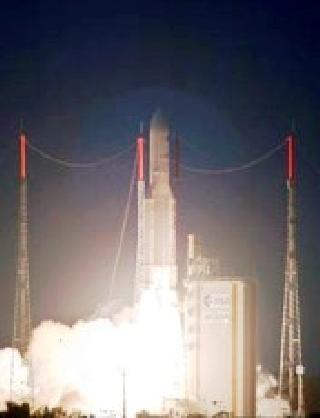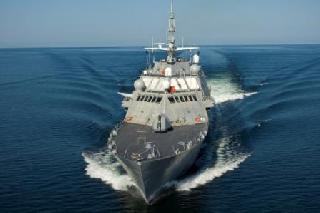
A file photo.
WASHINGTON (PTI): China is developing a new anti-ship ballistic missile that can sink US aircrafts, a top Pentagon naval commander has claimed.
He also said China's other military developments are part of the Chinese ambition to extend its area of influence beyond the region and become a global military power.
As such, in an interview to Asahi Simbhun, the popular Japanese newspaper, Admiral Robert Williard, Commander of the US Pacific Command, has warned of an arms race in the region and shift of balance of power in Asia, which he noted is not good for stability in Asia.
"I would say that the military balance is undoubtedly shifting as China's military expands faster than other regional nations, but the strategic balance remains in flux," Willard told the popular Japanese newspaper in an interview given in Honolulu, headquarter of the Pacific Command.
"The anti-ship ballistic missile system in China has undergone extensive testing. An analogy using a Western term would be initial operational capability, whereby it has--I think China would perceive that it has an operational capability now, but they continue to develop it.
"It will continue to undergo testing, I would imagine, for several more years," he told the newspaper.
"I think that the component parts of the anti-ship ballistic missile have been developed and tested," he said.
"The anti-access/area denial capabilities, fully employed, will present a challenge to military operations in the region. That will have to be overcome," he said.
The PACOM Commander said the anti-access/area denial systems being developed by China, more or less, range countries, archipelagos such as Japan, the Philippines and Vietnam, so there are many countries in the region that are falling within the envelope of this, of an A2/AD capability of China.
"That should be concerning--and we know is concerning--to those countries," he said.
"While it may be largely designed to assure China of its ability to affect military operations within its regional waters, it is an expanded capability that ranges beyond the first island chain and overlaps countries in the region. For that reason, it is concerning to Southeast Asia, (and) it remains concerning to the United States," he said.
"This kind of capability should be a concern to the region, and it poses a challenge to any naval or air operations that would be conducted in that area were it to be employed," he said in response to a question, but added that this is not affecting US operations capabilities as of now.
Willard said the tremendous advancement in China's military itself is shifting the overall balance of military powers in the region.
It has been rare in history that any country underpinned by the kind of economic power that China possesses has developed its military so rapidly, he said.
"But at the same time, the other countries in the Asia-Pacific region that are troubled by and uncertain of China's intentions are also advancing their own military capabilities, and this is particularly true in the acquisition of submarines and advanced aircraft.
"We are seeing not only China advance, but (also) the other militaries in the region that can afford it seek to advance alongside," Willard said.
"I think that the nations in the region have a responsibility to be able to maintain security within their territory, and not all of the nations in the Asia-Pacific are self-sufficient militarily.
To an extent, the acquisition of systems (and) the advancement of our regional militaries will assist all of us in sharing the responsibility to maintain security across Asia-Pacific," he said.
"To the extent the acquisitions are specifically to counter China or any other nation's growing military, it would raise the question whether or not those acquisitions are properly balanced to achieve self-sufficiency or whether it's targeted against counter-balancing other military powers," Willard said.
 Previous Article
Previous Article Next Article
Next Article













The Indian Air Force, in its flight trials evaluation report submitted before the Defence Ministry l..
view articleAn insight into the Medium Multi-Role Combat Aircraft competition...
view articleSky enthusiasts can now spot the International Space Station (ISS) commanded by Indian-American astr..
view article